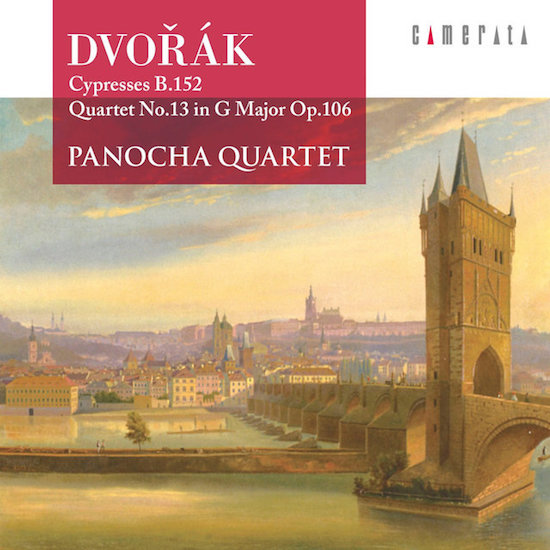12.

Dvořák – Quartet Cypresses op 106 B.152
With a lot of the Czech and Russian composers you tend to get allusions to folk music but they do tend to incorporate them fairly well. On the subject of allusions to folk music… the folk music of Czechoslovakia sounds just like the folk music of Poland which sounds just like the folk music of Finland and so on. There is a genre called folk music and it’s international and doesn’t have anything to do with any particular place. At the same time that this small chamber music was being composed all minor states and secessionist areas were expressing themselves through art nouveau but it was all the same art nouveau wherever you went; whether you were in Riga, Lille or Holland. It’s the same kind of internationalism at play in the quartets and that’s a strange correspondence between two arts but perhaps it’s not surprising because internationalism has always been there and always will no matter what happens in Britain.
When Dvořák went to America in 1892 he wanted to discover "American Music" and engage with it. He supported the concept that African-American and Native American music should be used as a foundation for the growth of American music. He felt that through the music of Native Americans and African-Americans, Americans would find their own national style of music… which is a profoundly modern and clear sighted way of looking at things from my point of view. Would Dvořák be accused of cultural appropriation in 2019?
I don’t know enough about Dvořák’s American work to comment really but he was a great figure. Some of his work that was premiered in the States was totally European, totally Czech. But then you get this other stuff that was almost like a precursor for Copeland. Copeland couldn’t have composed without prior knowledge of Dvořák. That’s the feeling I get from listening to his work anyway. The whole cultural appropriation thing has got out of control and is stupid. If you’re a writer, I guess you can just stick to writing about yourself but if you’re a composer I don’t know how you compose music about yourself. The whole history of art is the history of appropriation. And that’s any art. Last week there was a piece in The Guardian about how much designers owed to the Bauhaus and if they were all dead Germans I guess it would have been OK but they weren’t. Norman Foster is alive and he’s from Manc, so I guess you could accuse him of appropriating but it doesn’t seem to be an issue in architecture… yet. Although I’m sure it will be. It’s ridiculous because accusations of appropriation ignore the whole continuity of art. When Picasso started borrowing from Africa, Haiti and the ancient Aztecs it didn’t seem unreasonable – you scratch around for something that’s going to give you an idea which you can ride on and can take with you.


